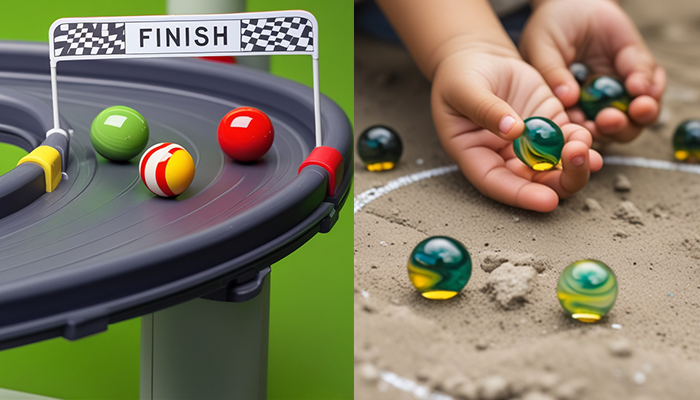How to cope with losing in marble racing
Marble racing is an exciting sport with unpredictable outcomes, where both victories and losses are part of the journey. Marble sport offers a dynamic experience that keeps fans engaged, but knowing how to cope with losing in marble racing is essential for staying motivated despite setbacks. While the thrill of competition is unmatched, losing can be discouraging, especially when expectations are high, but it also provides opportunities to learn and grow. By staying positive and adopting practical approaches, you can turn setbacks into stepping stones for future success and stay motivated for the next race.
Accept that losing is part of the game
Marble racing, like any competitive sport, is full of unpredictability, where even the most consistent marbles can struggle on certain tracks. It’s important to recognize that losing is a natural part of the experience and an opportunity to better understand racing strategies.

Instead of dwelling on setbacks, focus on the excitement of the sport, the creativity behind track designs, and the challenge of improving your approach.
If you’re looking to turn your passion into profit, explore how to make money from marble racing and learn how top racers maximize their success.
Analyze your marble racing strategy
Instead of blaming bad luck, take a closer look at why your marble underperformed in a race. Identifying factors such as track obstacles, marble weight, or course suitability can provide valuable insights for future competitions. How to cope with losing in marble racing includes learning from past performances and adjusting strategies for better results.
For example, sand tracks present unique challenges that require a different approach compared to smooth-surface tracks. Understanding the terrain and how marbles interact with different surfaces can greatly improve your strategy.
Embrace the value of long-term success
A single loss does not define your marble’s overall performance, as long-term consistency is key in marble racing. Keeping track of race data, analyzing strengths and weaknesses, and improving based on patterns can contribute to steady progress. When you shift your focus from short-term setbacks to long-term growth, individual losses become less discouraging.
Avoid emotional overreactions
It’s natural to feel disappointed after a loss, especially when expectations are high. However, reacting impulsively by drastically changing strategies or retiring a marble too soon can do more harm than good.

Instead, take a step back, acknowledge the progress made, and approach future races with a clear and level-headed mindset.
If you’re aiming to improve performance, check out what makes a marble faster to optimize speed and efficiency.
Focus on the joy of marble racing
Remind yourself why you started enjoying marble racing in the first place, whether it’s the thrilling track designs, the competitive spirit, or the community engagement. Participating in discussions, sharing race highlights, and celebrating the creativity of the sport can reignite your passion. By shifting your focus to the fun aspects, you’ll find it easier to move past losses and appreciate the experience.
Learn from experienced racers
The marble racing community is full of enthusiasts who can offer advice on handling setbacks and refining strategies. Observing how experienced racers analyze races and adapt to challenges can provide valuable lessons for your own approach. Engaging with this community through online forums or events can be both motivating and insightful.
Take breaks when needed
If repeated losses start to feel overwhelming, stepping away from marble racing for a short break can help reset your mindset. Engaging in other hobbies or researching new techniques can provide fresh perspectives and renewed motivation.

Returning after a break often brings new enthusiasm, making the experience more enjoyable.
Celebrate small wins
While major victories are exciting, small achievements along the way are equally important. Noticing improvements, such as performing well on a difficult section or discovering a promising strategy, can boost confidence. Recognizing progress helps maintain motivation and ensures that every race contributes to your overall growth.
FAQ cope with losing in marble racing
Why do some marbles lose more often than others?
Factors like track type, marble weight, and surface interaction can affect performance. Analyzing these helps improve future picks.
How do you slow down a marble run?
Use gentler slopes, add friction materials like felt, or introduce curved sections to reduce speed.
What is an alternative to marble run?
LEGO runs, ball mazes, or kinetic sand tracks offer similar fun and creativity.



